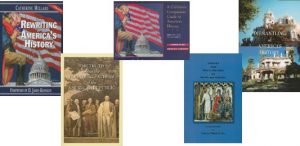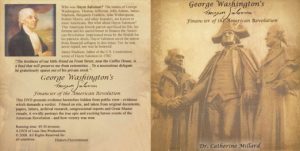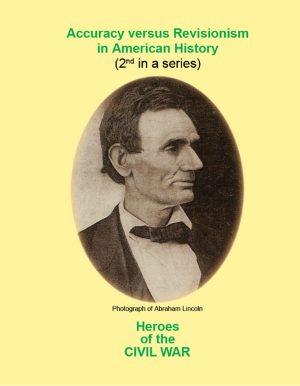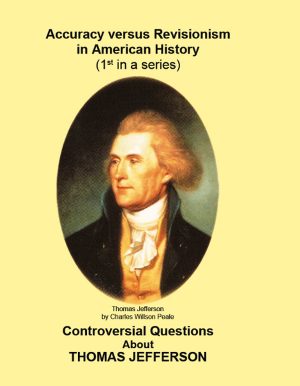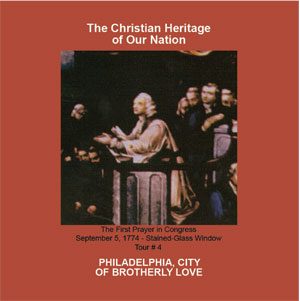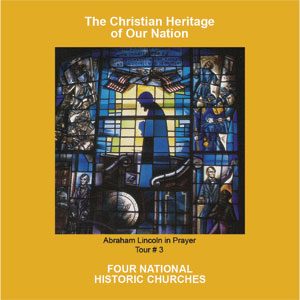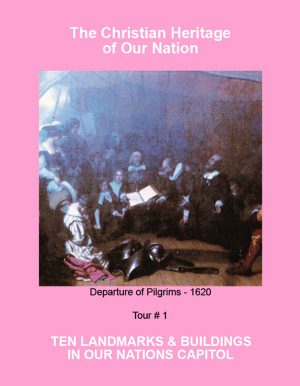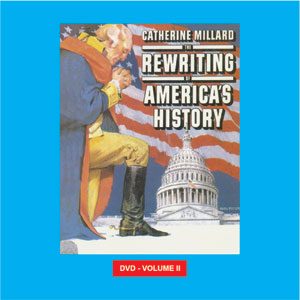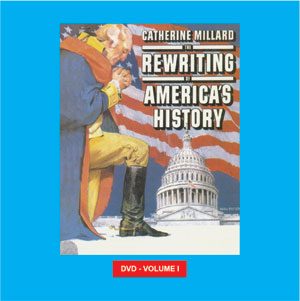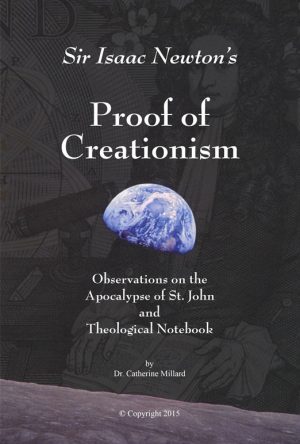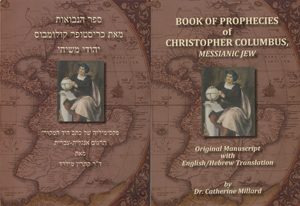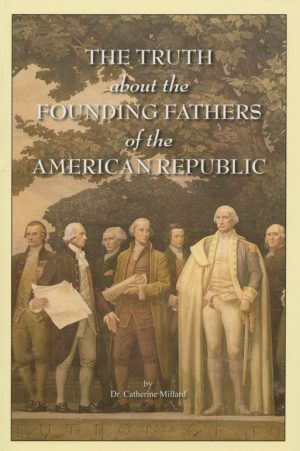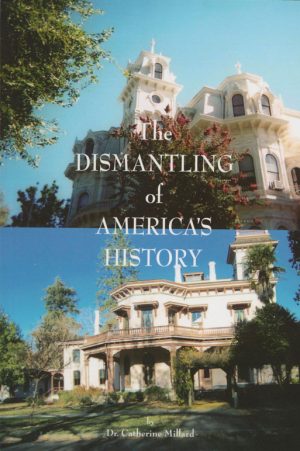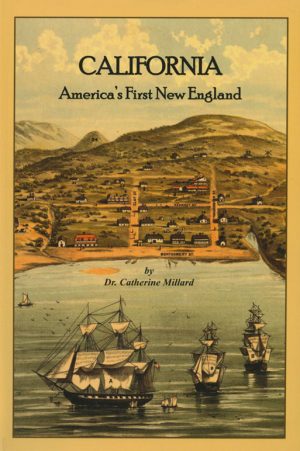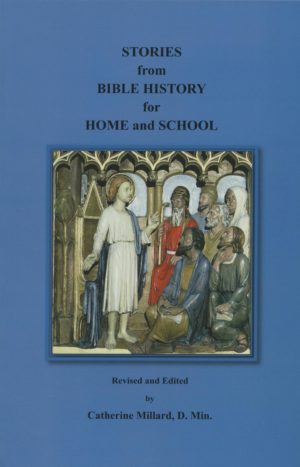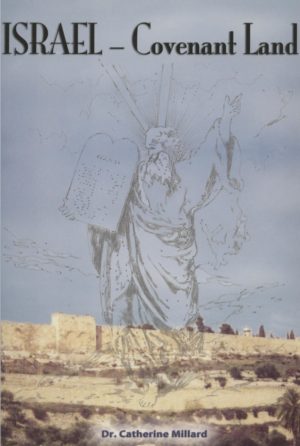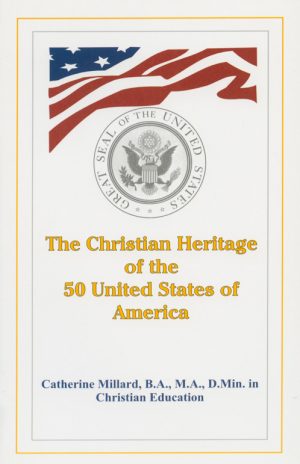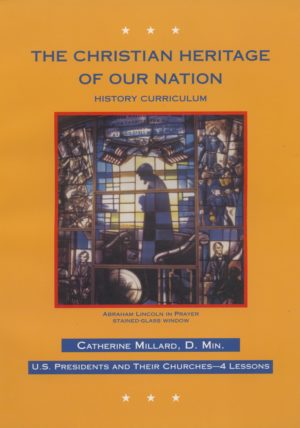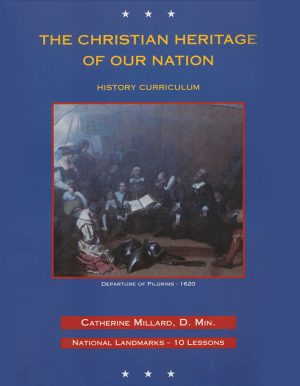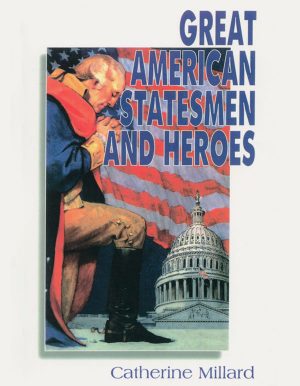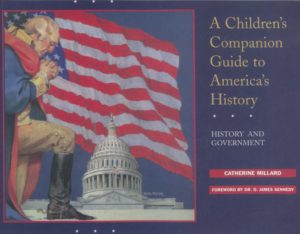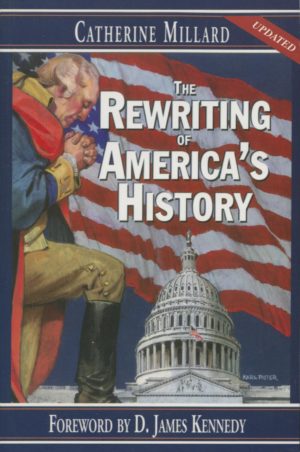The Smithsonian Institution’s Smithsonian Magazine, January, 2012, Volume 42, Number 9 edition, featured an article entitled, God, Government and Roger Williams’ Big Idea, by John M. Barry, which accused King James I of loyalty to the Roman Catholic Church, as follows:
“…Her (Queen Elizabeth I) successor was King James, the Scottish Mary’s
son. James was Protestant but moved the Church of England ever closer to Catholicism, inflaming Puritans. In 1604, believing the existing English Bibles did not sufficiently emphasize obedience to authority, he ordered a new translation; what became known as the King James Bible satisfied him on that point. In politics, he injected the theory of the divine right of kings into English history and claimed that “the monarch is the law. Rex est lex loquens, the King is the law speaking…”
Nothing could be further from the truth. Following the 1604 Hampton Court Conference, six companies comprising ‘certain learned men,’ as King James called them, were established to work on the new translation. There were two companies in each of Oxford, Cambridge and Westminster. Between 47 and 54 translators were recruited, almost exclusively from universities of Oxford and Cambridge, who worked for seven years at the task, producing from the Original Tongues, an exact translation of Scripture into the English language.
The Library of Congress’ Rare Book Collection houses an original 1605 A.D. book which refutes this historic revisionism. A detailed account of the notorious “Gunpowder Plot” by the Catholic Jesuits and Papists, to blow up King James and the House of Parliament, in November 5, 1605 A.D. is reprinted as follows:
“England’s Remembrance
A True and Full Narrative of the
Hellish Powder Plot, November 5, 1605.
Whereunto is added the like Narrative of the Signal
Judgment of God upon Papists, by the Fall of the House
in Black Fryers, London, upon their 5th November 1623.
“…The plot was to undermine the Parliament House, and with powder to blow up the King, Prince, Clergy, Nobles, Knights and Burgesses, the very confluence of all the flower of glory, piety, learning, prudence and authority in the land…Their intent, when that irreligious achievement had been performed, was to surprise the remainder of the King’s House, to alter Religion and Government, and to bring in a Foreign Power…
The sessions of Parliament being dissolved July the 7th Anno Christ, 1604, and prorogued to the 7th of February following: Catesby being at Lambeth, sent for Thomas Winter, who before had been employed into Spain, and acquainted him with the design of blowing up Parliament House, who readily apprehending it, said, ‘This indeed strikes at the root;’ only these helps were wanting, a house for residence, and a skillful man to carry on the mine: but the first, Catesby assured him, was easy to be got; and for the man he commended Guy Fawkes, a sufficient soldier, and a forward Catholic: Thus Robert Catesby, John Wright, Thomas Winter and Guy Fawkes, had many meetings and conferences about this business, till at last Thomas Percy came puffing in to Catesby’s lodging at Lambeth, saying, ‘What, gentlemen – shall we always be talking, and never doing anything? You cannot be ignorant how things proceed?’ To whom Catesby answered, that something was resolved on, but first an Oath of secrecy was to be administered: for which purpose they appointed to meet some three days after, behind Clements Church beyond Temple-Bar; where being met, Percy professed that for the Catholic Cause, himself would be the man to advance it, were it with the slaughter of the King, which he was there ready to undertake and do.
‘No, Tom,” (said Catesby), thou shalt not adventure thyself to so small a purpose; if thou wilt be a Traitor, there is a Plot to greater advantage, and such a one as can never be discovered: Hereupon all of them took the Oath of secrecy, heard a Mass, and received the sacrament, after which Catesby told them his devilish device by mine and gunpowder to blow up the Parliament House, and so by one stroke with the destruction of many to effect that at once which had been many years attempting; and for Cause of Conscience to kill the innocent with the nocent, he told them that it was warrantable by the Authority of Garnet himself, the Superior of the English Jesuits, and Garrard and Tresmond (Jesuitical Priests likewise) who, by their Apostolical Power did commend that fact, and absolve the actors. The Oath was given them by the said Garrard in these words: ‘You shall swear by the Blessed Trinity, and by the Sacrament you now purpose to receive, never to disclose directly, nor indirectly, by word, or circumstance, the matter that shall be proposed to you to keep secret, nor desist from the execution thereof until the rest shall give you leave.’
The project being thus carried on, in the next place the first thing they sought after, was a house wherein they might begin their work, for which purpose no place was held fitter than a certain edifice adjoining to the wall of the Parliament House, which served for a withdrawing room to the Assembled Lords, and out of Parliament time was at the dispose of Mr. Winyard, the Keeper of the place, and Wardrobe thereto belonging: these did Percy hire for his lodgings, entertaining Fawkes as his man, who changing his name into Johnson, had the keys and keeping of the rooms commended to him. Besides this, they hired another house to lay in provision of powder, and to frame and fit wood in for carrying on the mine, which Catesby provided at Lambeth and swore Robert Keyes into their conspiracy, whom he made Keeper of those provisions, who by night conveyed the same unto Fawkes…
They which first began the mine, were Robert Catesby, Esquire, the Arch-Contriver and Traitor; and ruin of his name, Thomas Percy, Esquire, a kin to the Earl of Northumberland; Thomas Winter, John Wright, Guy Fawkes, gentlemen, and Thomas Bates, Catesby’s man, all of them well-grounded in the Romish School, and earnest labourers in this Vault of Villany, so that by Christmas Eve they had brought the mine under the Entry adjoining to the wall of the Parliament House, under-propping the earth, as they went with their framed timber, not till that day were they seen abroad of any man.
During this undermining, much consultation was had, how to order the rest of the business when the deed should be accomplished. The first was, how to surprise the next Heir to the Crown: for though they doubted not but that Prince Henry would accompany his father, and perish with him, yet they suspected that Duke Charles, as too young to attend the Parliament, would escape the train, and perchance so carefully guarded and attended at Court, that he would be gotten into their hands hardly. But Percy offered to be the remover of this rub, resolving with some other gentlemen to enter the Duke’s Chamber, which by reason of his acquaintance, he might well do, and others of his acquaintance should be placed at several doors of the Court, so that when the blow was given, and all men in a maze, then would he carry away the Duke, which he presumed would be easily done, the most of the Court being then absent, and for such as were present, they would be altogether un-provided for resistance.
For the surprise of Lady Elizabeth, it was held a matter of far less difficulty, she remaining at Comb Abbey in Warwickshire with the Lord Harrington, and Ashbey, Catesby’s house, being not far from the same, whither under a pretense of a hunting upon Dunsmore Heath, many Catholics should be assembled, who, knowing for what purpose they were met, had the full liberty in that distracted time to provide money, horses, armor and other necessaries for war, under the pretense of strengthening and guarding the Heir Apparent to the Crown.
Then it was debated what Lords they should save from the Parliament, and it was agreed that they should keep as many as they could that were Catholics or Favourers of them; but that all others should feel the smart, and that the Treason should be charged to the Puritans to make them more odious to the world.
The business being thus forwarded abroad, by their accomplices, they at home were no less active. For Percy, Winter and Fawkes had stored this cellar with 36 barrels of gunpowder, and instead of shot, had laid upon them bars of iron, logs of timber, massie stones, iron crows, pick-axes, and all the working tools, and to cover all, a great store of billets and faggots, so that nothing was wanting against that great and terrible day. Neither were the Priests and Jesuits slack on their parts, who usually concluded their Masses with prayers for the good success of their expected hopes, about which Garnet made these verses: ‘Gentem aufer perfidam credentium de finibus: Ut Christo laudes debitas persolvamus alacriter.’ And others thus, ‘Prosper, Lord, their pains that labour in thy cause day and night: Let heresy vanish away like smoke: Let their memory perish with a crack like the ruin and fall of a broken house.’
…Upon Thursday in the evening, ten days before the Parliament was to begin, a Letter directed to the Lord Monteagle, was delivered by an unknown person to his footman in the street, with a straight charge to give it into his Lord’s own hands, which accordingly he did. The Letter had neither date, nor subscription, and was somewhat illegible, so that the nobleman called for one of his servants to assist him in reading it; the strange contents whereof much perplexed him…
Hereupon these two counselors showed the Letter to the Earls of Worcester and Northampton, and all concluded (how slight soever the contents seemed to appear), to acquaint the King himself with the same, which accordingly was done by the Earl of Salisbury, who upon Friday in the afternoon (being All-Saints day) taking the King into the Gallery at Whitehall, communicated the letter to him, which was as follows,
‘My Lord,
Out of the love I bear to some of your friends, I have a care of your preservation. Therefore, I would advise you as you tender your life, to devise some excuse to shift off your attendance at this Parliament: For God and man have concurred to punish the wickedness of this time. And think not slightly of this advertisement, but retire yourself into your country, where you may expect the event safely. For though there be no appearance of any stir, yet I say, they shall receive a terrible blow this Parliament, and yet they shall not see who hurts them. This counsel is not to be contemned, because it may do you good, and can do you no harm. For the danger is past so soon as you have burnt the Letter. And I hope God will give you the Grace to make a good use of it, to whose holy protection I commend you.’
…His Majesty, after reading this letter, pausing a while, and then reading it again, delivered his judgment, that the style of it was too quick and pithy to be libel proceeding from the superfluities of an idle brain, and by these words; he presently apprehended, that a sudden danger by a blast of gunpowder was intended by some base villain in a corner, though no insurrection, rebellion, or desperate attempt appeared, That they should receive a terrible blow at this Parliament, and yet not see who hurt them. But the Earl of Salisbury, perceiving the King to apprehend it deeper than he expected, told his Majesty that he judged by one sentence in it that it was written either by a fool, or a mad man. For said he, ‘If the danger be past as soon as you have burnt the letter, then the warning is to little purpose when the burning of the letter may prevent the danger.’
But the King, on the contrary, considering the former sentence, That they should receive a terrible blow at this Parliament, and yet not see who hurt them, joining it with this other sentence, did thereupon conclude that the danger mentioned should be very sudden by some blast of gunpowder: interpreting as soon, for, as quickly, and therefore wished that the rooms under the Parliament House should be thoroughly searched, before himself or peers should sit therein. Hereupon it was concluded that the Lord Chamberlain (according to his office) should view all the rooms above and below: but yet, to prevent idle rumours and to let things ripen further, it was resolved that this search should be deferred till Monday, the day immediately before the Parliament, and that then it should be done with a seeming slight eye to avoid suspect.
According to this conclusion, the Earl of Suffolk, Lord Chamberlain, upon Monday in the afternoon, accompanied with the Lord Monteagle, repaired into those under rooms, and finding the cellar so fully stored with wood and coals, demanded of Fawkes, the counterfeit Johnson who stood there attending as a servant of small repute, who owned the place? He answered that the lodgings belonged to Mr. Thomas Percy, and the cellar also, to lay in his winter provision, himself being the keeper of it, and Mr. Percy’s servant; whereunto the Earl, as void of any suspicion, told him that his master was well provided against winter blasts.
But, when they were come forth, the Lord Monteagle told him that he did much suspect Percy to be the inditer of the Letter, knowing his affection in religion, and the friendship betwixt them professed, so that his heart gave him (as he said) when he heard Percy named, that his hand was in the act.
The Lord Chamberlain returning, related to the King and Council what he had seen, and the suspicion that the Lord Monteagle had of Percy, and himself of Johnson his man, all which increased his Majesty’s jealousy, so that he insisted that a narrower search should be made, and the billets and coals turned up to the bottom. Of the same mind were all the Privy-Counselors then present…Yet at last the search was concluded to be made, but under colour of searching for certain hangings belonging to the House, which were missing and conveyed away…
Sir Thomas Knevet (a gentleman of his Majesty’s Privy-Chamber, and a Justice of Peace in Westminster) was employed herein, who about midnight before the Parliament was to begin, went to the place with a small, but trusty number of persons, and at the door of the entrance to the cellar, finding one (who was Guy Fawkes) at so unseasonable an hour, cloaked and booted, he apprehended him, and ransacking the billets, he found the serpents next stored with 36 barrels of powder, and then searching the villain, he found about him a dark lantern, three matches, and other instruments for blowing up the powder. And Fawkes being no whit daunted, instantly confessed his guiltiness, and was so far from repentance, as he vowed, that had he been within the House (as indeed he was, immediately come forth from his work), himself and them all. And being brought before the Council, he lamented nothing so much as because the deed was not done, saying, that the Devil, and not God, was the discoverer of it.
And indeed when this prisoner was first brought into Whitehall, in respect of the strangeness of the thing, no man was restrained from seeing and speaking with him, and not long after the Lords of the Council examined him. But he put on such a Romane resolution, that both to the Council, and to all others that spoke to him that day, he seemed fixed and settled in his resolution of concealing his complices; and notwithstanding the horror of the fact, the guiltiness of his conscience, his sudden surprise, the terror which should have been stricken into him, by coming into the presence of so noble and grave a Council, and the restless and confused questions that every man all that day did vex him with; yet was his countenance so far from being dejected, that he often smiled in a scornful manner, answering quickly to every man’s questions, scoffing at those that were impertinent, and jesting at such as he thought had no authority to examine him. Before the Council, he refused to answer to such questions as he thought might discover the Plot: took all the blame on himself, whereunto he said he was moved only for Religion, and Conscience sake, denying the King to be his lawful sovereign, because he was a Heretic.
As desperate were Catesby, Percy and the rest, who seeing the treason discovered, posted all into Warwickshire.
About the same hour of the night, wherein Fawkes was apprehended, one Grant, a gentleman, having associated to himself others of his opinion, all desperate Papists, broke open the stables of Mr. Bennock, a rider of great horses at Warwick Castle and carried away eight of them, which belonged to divers noblemen and gentlemen of that country, who had put them into Mr. Bennock’s hand to fit them for the service, and so both they which had fled from London, and Grant and his company met on that Tuesday night at Dun-Church, at Sir Everard Digby’s lodgings, who had made a match for a great Hunting, upon Dunsmore-heath, that under pretence thereof they might seize upon the Lady Elizabeth then at Comb-Abbey, with the Lord Harrington. But when by those which posted from London, they were informed that they were discovered, and pursued, being struck with great fear, not knowing whither to fly, they desperately began an open rebellion, pretending that they did it for the cause of Religion, all the Catholics’ throats being intended to be cut.
But the violent taking away of those horses in the night, seemed even in the eyes of the common people to be so great a riot, though they knew nothing more, that it begat in the hearts a suspicion of some following rebellion, so that all sorts, both great and small, began to arm themselves upon this unexpected accident. And old Sir Fulk Grevel of Beauchamps-Court, being Deputy-Lieutenant of Warwickshire, though aged and infirm, yet out of his zeal for the peace and welfare of his country, presently took order to get into his hands the ammunition and arms of all such gentlemen as were absent from their houses, or Popishly affected, and sent such directions to the towns about him, that thereupon when these rebels came to Ilcester, a poor Smith Stroke Winter, who had likewise been taken by the townsmen, but that he was rescued by his companions. Yet sixteen of their followers were taken and sent to the Sheriff to Warwick, and from thence to London.
In the meantime, the rest wandered through Warwickshire, being pursued by Sir Richard Verney, the then High-Sheriff, and from thence they went through Worcestershire into the borders of Staffordshire, their servants and followers being about eighty men, who also stole away many of them from them. Thus ranging about, and finding no resistance, they rifled the Lord Windsor’s House of all the armour, shot, powder and all other warlike provision: but the weather being rainy, and the waters somewhat high, the powder in carriage took wet, and so became unserviceable.
For the last refuge they betook themselves to Holbach House in Staffordshire, belonging to Steven Littleton, whither they were pursued by the High-Sheriff of Worcestershire, who, not knowing of the Treason, and thinking it only to be some fray or riot, sent his Trumpeter unto them, commanding them to render themselves to him, his Majesty’s Minister. But their consciences witnessing what the Sheriff knew not, answered that he had need of greater assistance than of those few that were with him, before he could be able to command or control them. And so they prepared for resistance, and having laid two pounds of said powder into a platter to dry in the chimney, one coming to mend the fire threw in a billet, whereby a spark flew into the powder, whose sudden blast was so violent, that though so small a quantity, it blew up the roof of the House, scorching the bodies and faces of Catesby, Rookwood and Grant, and some others, whose consciences now told them that God had now punished them justly with Powder, who with Powder would have destroyed so many.
Being dispirited with this accident, yet like desperate men, they resolved to die together, set open the gates, and suffered the Sheriff’s men to rush in upon them, and presently both the Wrights were shot down dead; Rookwood and Thomas Winter were very sorely wounded, Catesby and Percy desperately fighting back to back, were both shot through, and slain with one musket bullet; the rest being taken, were carried prisoners to London, being all the way gazed at, reviled and detested by the common people, for their horrid and horrible Treason. And so at last they received the just guerdon of their wickedness.
Thus you have seen this work of darkness by the watchfulness of God’s providence detected and defeated, the contrivers of mischief fallen into the Pit that they digged for others. Now let us see also how cunningly they contrived the transferring the odium of it upon the Puritans.
There was one, Mr. Pickering of Tichmarsh-Grove in Northhamptonshire, that was in great esteem with King James. This Mr. Pickering had a horse of special note for swiftness, on which he used to hunt with the King. A little before the blow was given, Mr. Keies, one of the conspirators and brother-in-law to Mr. Pickering, borrowed his horse of him, and conveyed him to London upon a bloody design which was thus contrived.
Fawkes, upon the day of the fatal blow was appointed to retire himself to St. Georges Fields, where his horse was to attend him to further his escape (as they made him believe), so soon as the Parliament House should be blown up. It was likewise contrived, that Mr. Pickering, who was noted for a Puritan, should that morning be murdered in his bed, and secretly conveyed away; as also that Fawkes, so soon as he came to Georges Fields to escape, should be there murdered, and so mangled, that he could not be known: whereupon it was to be bruited abroad that the Puritans had blown up the Parliament House, and the better to make the world believe it, there was Mr. Pickering with his choice horse ready to make an escape, but that stirred up some, who seeing the heinousness of the fact, and him ready to escape, in detestation of so horrible a deed, fell upon him and hewed him in pieces, and to make it more clear, there was his horse, known to be of special speed and swiftness, ready to carry him away, and upon this rumour, a massacre should have gone through the whole land upon the Puritans.
When the contrivance of this Plot was thus discovered by some of the conspirators, and Fawkes, who was now a prisoner in the Tower, made acquainted with it, whereas before he was made to believe by his companions that he should be bountifully rewarded for his good service to the Catholic Cause, now perceiving that on the contrary his death had been contrived by them, he thereupon freely confessed all that he knew concerning that horrid conspiracy, which before, all the tortures of the rack could not force him unto.
The truth of all this was attested by Mr. William Perkins, an eminent Christian and citizen of London to Dr. Gouge, which Mr. Perkins had it from the mouth of Mr. Clement Cotton, that made our English Concordance, who also had it from the relation of Mr. Pickering himself.
The names of those that were first in this Treason and labored in the Mine, were, Robert Catesby, Robert Winter, Esquires; Thomas Percy, Thomas Winter, John Wright, Christopher Wright, Guy Fawkes, Gentlemen; and Bates, Catesby’s man.
Persons made acquainted with it, and promoters of it, were, Sir Everard Digby, Knight; Ambrose Rookwood, Francis Tresham, Esquires; John Grant, Gentleman; Robert Keyes.
This prodigious contrivance did not only stupefy the whole Kingdom with consternation and amazement, but Foreign Princes, at least, seemed to wonder at it also, and though (for the propagation of the Catholic Cause) they might have Conscience enough to wish that it had taken effect, yet they had policy enough to congratulate the discoverers; and some of them, to take off the asperity of the suspect, sweetened their expressions with many gifts to our King and Queen.
The Parliament, by reason of the hurry occasioned hereby, met not till the 9th of November, at which time Henry, Lord Mordant, and Edward, Lord Sturton not coming to the Parliament according to the Writ of Summons, were suspected as having knowledge of the Conspiracy, and so was he Earl of Northumberland, from some presumptions, and all three were committed to the Tower. The two Barons, after a while were redeemed by fine in Starchamber, but the Earl continued a prisoner there for many years after.
How Parliament was affected for this great deliverance of the whole Kingdom from ruin and destruction, will appear by the Act which they made to have the 5th of November forever solemnized with Public Thanksgiving: wherein they imputed the discovery of the Treason to the inspiring the King with a Divine Spirit to interpret some dark phrases in the Letter, above and beyond all ordinary construction. They attainted also the blood of those Traitors that were executed, as also of those that were slain at Holbach-House, or that died in prison: and the King being not unmindful of the Lord Monteagle, the first discoverer of this Treason, gave him, and his Heirs forever, two hundred pounds a year besides, during his life, as a reward for his good service. But now to the Act itself:
“An Act for a Public Thanksgiving
to Almighty God every year on
the 5th of November
Forasmuch as Almighty God hath in all Ages, showed his Power and mercy in the miraculous and gracious deliverance of his Church; and in the protection of religious Kings and States, and that no Nation of the earth hath been blessed with greater benefits than this kingdom now enjoyeth, having the true and free profession of the Gospel under the most great, learned and religious King that ever reigned therein, enriched with a most hopeful and plentiful Progeny, proceeding out his Royal loins, promising the continuance of this happiness, and profession to all posterity: the which many malignant and devilish Papists, Jesuits and Seminary Priests, much envying and fearing, conspired most horribly, when the King’s most Excellent Majesty, the Queen, the Prince and all the Lords Spiritual and Temporal, and Commons, should have been assembled in the Upper House of Parliament upon the 5th day of November in the Year of our Lord, 1605, suddenly to have blown up the said House with gunpowder; an intention so inhumane, barbarous and cruel, as the like was never before heard of; and was (as some of the principal conspirators confess) purposely devised, and concluded to be done in the said House, that, where sundry necessary and religious laws for the preservation of the Church and State were made, which they falsely and slanderously term cruel Laws, enacted against them and their Religion; both place and persons should be all destroyed and blown up at once, which would have turned to the utter ruin of this whole Kingdom, had it not pleased Almighty God, by inspiring the King’s most Excellent Majesty with a Divine Spirit, to interpret some dark phrases of a Letter showed to his Majesty, above and beyond all ordinary construction, thereby miraculously discovering the hidden Treason, not many hours before the appointed time for the execution thereof.
Therefore, the King’s most Excellent Majesty, the Lords Spiritual and Temporal, and all his Majesty’s faithful and loving subjects do most justly acknowledge this great and infinite blessing to have proceeded merely from God’s great mercy, and to His most holy Name do ascribe all honour, glory and praise.
And to the end this unfeigned thankfulness may never be forgotten, but be had in a perpetual remembrance, that all ages to come may yield praises to His Divine Majesty for the same, and have in memory this joyful day of deliverance.
Be it therefore enacted by the King’s most Excellent Majesty, the Lords Spiritual and Temporal, and by the Commons in this Authority of this same: That all and singular Ministers in every Cathedral, and Parish Church, or other useful place for Common Prayer, within this realm of England and the Dominions of the same, shall always, upon the 5th day of November, say morning prayer and give unto Almighty God thanks for this most happy deliverance; and that all and every person inhabiting within the realm of England, and the Dominions of the same, shall always upon that day diligently and faithfully resort to the Parish Church or Chapel accustomed, or to some usual church or chapel where the said Morning Prayer, Preaching, or other service of God shall be used, and then and there abide orderly and soberly, during the time of the said Prayer, Preaching or other service of God, there to be used and ministered.
And because all and every person may be put in mind of this duty, and be the better prepared to the said holy service, Be it enacted by the Authority aforesaid, that, every Minister shall give warning to his parishioners publicly in the Church at Morning Prayer, the Sunday before every such 5th of November, for the due observance of the said day. And that after Morning Prayer or Preaching of the said 5th day of November, they read diligently and plainly this present Act.”
King James I’s Speech to Parliament
Shortly thereafter, King James I made a speech to Parliament, which was imprinted in London, Anno 1605, by Robert Barker, Printer to the King’s most Excellent Majesty.
The original is excerpted hereunder:
“His Majesty’s Speech in this Last Session
of Parliament, together with a Discourse of the
Manner of the Discovery of this late intended
Treason, joined with the Examination of some
of the Prisoners.
Ye Lords Spiritual and Temporal, and you the Knights and Burgesses of this Parliament, it was far from my thoughts till very lately before my coming to this place, that this subject should have been ministered unto me, whereupon I am now to speak. But not it so falleth out, that whereas in the preceding Session of this Parliament, the principal occasion of my speech was to thank and congratulate all you of this House, and in you, all the whole Commonwealth (as being the Representative Body of the State), for your so willing and loving receiving and embracing of me in that place, which God and nature, by descent of blood, had in His own time provided for me. So now my subject is to speak of a far greater Thanksgiving than before I gave to you, being to a far greater person, which is to God, for the great and miraculous delivery He hath at this time granted to me, and to you all, and consequently to the whole Body of this Estate. I must therefore begin with this old and most approved sentence of Divinity, Misericordia Dei supra Omnia opera eius. For Almighty God did not furnish so great matter to His glory, by the creation of this great world, as He did by the Redemption of the same. Neither did his generation of the little world in our old and first ADAM, so much set forth the praises of God in His Justice and Mercy, as did our generation in the last and second ADAM.*
…How much more cause have we that are Christians to bestow this time in this place for Thanksgiving to God for His great Mercy, though we had no other errant of assembling here at this time?
Wherein, if I have spoken more like a Divine than would seem to belong to this place, the matter itself must plead for mine excuse: For being here come to thank God for a Divine work of His Mercy, how can I speak of this deliverance of us from so hellish a practice, so well as in language of Divinity, which is the direct opposite to so damnable an intention? And therefore may I justly end this purpose, as I did begin it, with this sentence, The Mercy of God is above all His works.”1
The above original excerpt of – “His Majesty’s Speech in this last Session of Parliament…” (1605), proves that King James I was a humble, grateful, God-fearing Christian, who elevated Almighty God to His rightful place as Sovereign over the realms of England. There is no evidence of his placing himself above God’s supreme authority in Church and State – the King attesting to God’s superiority.
Had not Almighty God intervened, miraculously exposing the Jesuit and Papist Gunpowder Plot, together with their leader, Guy Fawkes; the following events shaping world history would not have occurred: (1) The King James Bible translation, authorized by King James I, and published in 1611. This Bible was used by some of the world’s greatest literary genius’ in their works, to include John Bunyan, author of the immortalized Pilgrim’s Progress (1678) and Daniel Defoe, who penned Robinson Crusoe (1719). A number of America’s foremost Presidents, including George Washington, James Madison and Abraham Lincoln used the King James Bible… (2) A cataclysmic event shaping world history was the reading from Genesis, Chapter 1 of the King James Bible by American astronauts, Colonel Frank Borman, Captain James Lovell and Major William Andres in their Apollo 8, Christmas Eve, 1968 orbit around the moon, while witnessing “Earthrise” – the earth, in lieu of the sun, rising. It is reported that a billion people around the globe saw this live television broadcast. (3) American Astronaut, James B. Irwin, wrote that, in 1971, he and his fellow-astronauts established a Christian site on the moon at Hadley Base, leaving a King James Bible on the Rover I. (4) The First Charter of Virginia, dated April 10, 1606, granted by King James I, founded the first permanent English settlement in America – Jamestown, originally known as “James Cittie – meeting place of the first representative legislative assembly in America in 1619. It reads: “JAMES, by the grace of God, King of England, Scotland, France, and Ireland, Defender of the Faith, etc., whereas our loving and well-disposed Subjects…have been humble suitors unto us, that we would vouchsafe unto them our License, to make Habitation, Plantation, and to deduce a Colony of sundry of our People into that Part of America, commonly called VIRGINIA, and other Parts, and Territories in America either appertaining unto us, or which are not now actually possessed by any Christian Prince of People,…We greatly commending, and graciously accepting of, their Desires for the Furtherance of so noble a Work, which may, by the Providence of Almighty God, hereafter tend to the Glory of His Divine Majesty, in propagating of Christian Religion to such People as yet live in darkness and miserable ignorance of the true Knowledge and Worship of God…” And many more…
November 5th, is commemorated annually in the searching of the vaults below the Houses of Parliament in England at the opening of the session, and by boys’ processions, carrying a scarecrow figure, representing Guy Fawkes with a dark lantern and matches, which is finally burned in a bonfire. “Guy Fawkes Day” is a holiday in British Commonwealth countries; fireworks being an annual tradition.
To learn more, click here.
___________________________
Bibliography:
1
England’s Remembrance. A true and full narrative of the Hellish Powder Plot, November 5, 1605. Whereunto is added the like narrative of the Signal Judgment of God upon the Papists, by the Fall of the House of Black Fryers, London, upon their 5th November 1623. Rare Book Collection, Library of Congress, Washington, D.C.
* Jesus, the Messiah.
